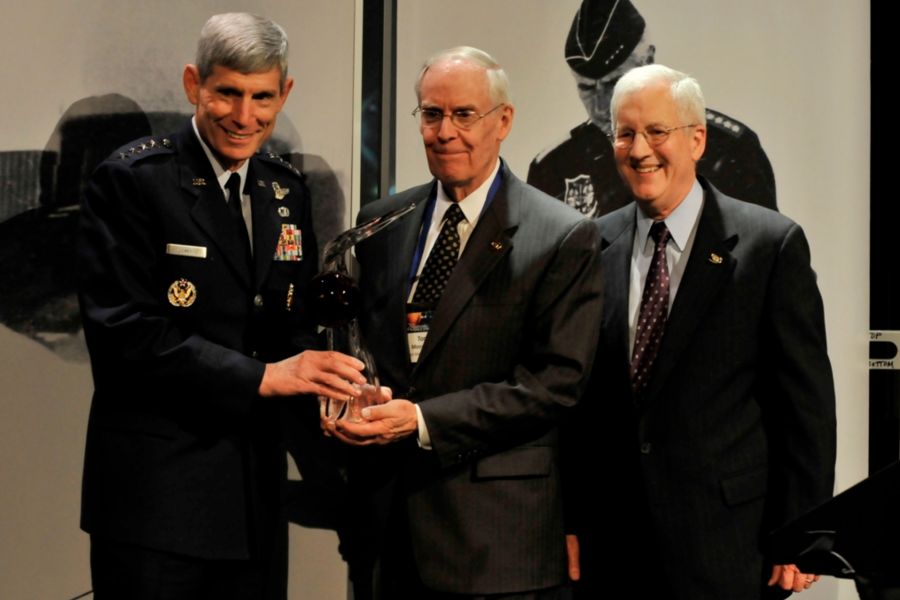Retired Gen. Thomas S. Moorman Jr., a key leader in the formation of Air Force space organizations and a former Air Force vice chief of staff, died June 17 at age 79.
Gen. Jay Raymond, U.S. Space Force Chief of Space Operations and head of U.S. Space Command, described Moorman as “a friend and long-time mentor” whose legacy will be “forever … etched in the establishment of U.S. Air Force Space Command.” Raymond said Moorman “played a pivotal role in establishing both national and Defense Department space programs, while laying the foundation for today’s U.S. Space Force.”
Moorman was born in Washington, D.C., the son of Lt. Gen. Thomas Moorman Sr., who served as superintendent of the Air Force Academy. Moorman Jr. earned his bachelor’s degree at Dartmouth and entered the Air Force through the Reserve Officer Training Corps in 1962. He held a number of intelligence-related positions as a junior officer, serving in Thailand during the Vietnam War as a reconnaissance mission planner.
He earned two master’s degrees: one in business administration from Western New England College and another in political science from Auburn University.
As a major, he embarked on a space specialty. He was director of space operations for the North American Aerospace Defense Command, deputy director for space defense in the Pentagon, and he held a number of positions managing development of space systems for surveillance, communication, navigation, and weather, including as staff director for the National Reconnaissance Office. While at the NRO, he led a series of analyses that eventually led to the creation of Air Force Space Command.
In 1987, Moorman became director of space systems for the joint-service Strategic Defense Initiative, and returned to USAF to continue working on SDI for Air Force Systems Command.
In March 1990, Moorman was named commander of Air Force Space Command at Peterson Air Force Base, Colo., where he was responsible for organizing or re-organizing and equipping all aspects of the Air Force’s space enterprise, early warning systems, and military space launch, as well as the intercontinental ballistic missile force.
In 1994, he was chosen to be vice chief of staff. Chief of Staff Gen. Ronald Fogleman said at the time that Moorman was selected because he was “the right man” for the job, but also to highlight the rapidly growing importance of space capabilities and organizations in the Air Force and Defense-wide. As vice chief, Moorman was USAF’s representative on the Joint Requirements Oversight Council and the Air Force’s point man for the Quadrennial Defense Review of service missions and capabilities.
Moorman retired from the service in 1997. In retirement, he served on a number of industrial boards, as well as the board of the Space Foundation, and was its vice chairman. He was also a partner with Booz Allen Hamilton, working for that organization from 1998-2008, developing the company’s Air Force and NASA business. He served on the congressionally chartered Space Commission, which in 2001 presented recommendations for an overhaul of the Defense, Intelligence Community, and National Oceanographic and Atmospheric Administration space enterprise.
Moorman received numerous awards, including the Gen. Thomas D. White Space Trophy; the Robert H. Goddard Memorial Trophy; the American Astronautical Society’s Astronautics Award; the Defense Intelligence Agency’s Director’s Award; the Space Foundation’s Space Achievement Award and Lifetime Achievement Awards; and two awards of the NRO’s Gold Medal. The Moorman Space Education and Training Center at Peterson is named for him, as is Air Force Space Command’s award for Best Operational Wing.
Editor’s Note: This story was updated on June 21 at 9:27 a.m. EDT to clarify Gen. Moorman’s status as one of just a few non-pilots to hold USAF’s second-highest leadership post.
